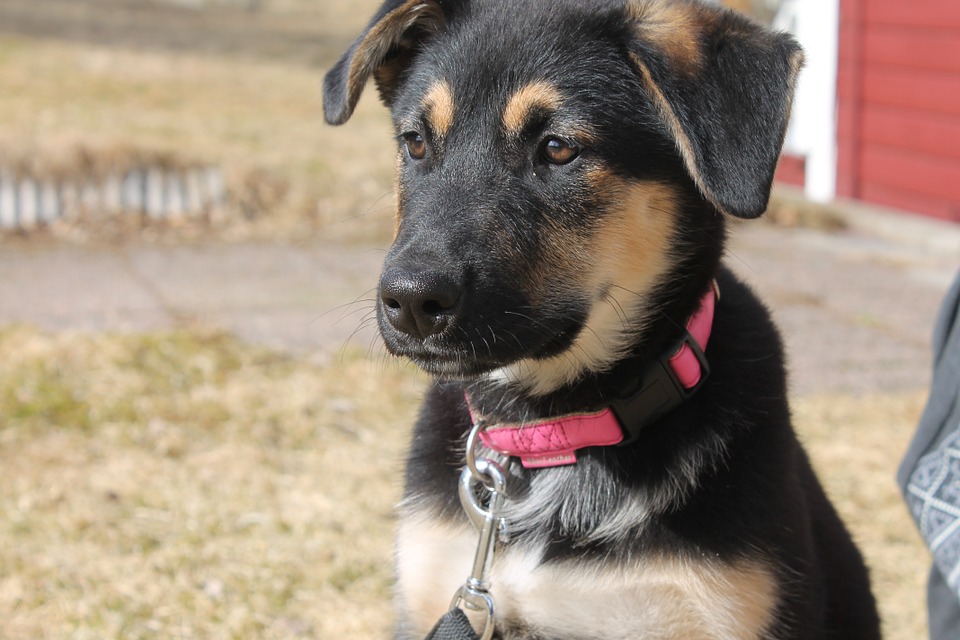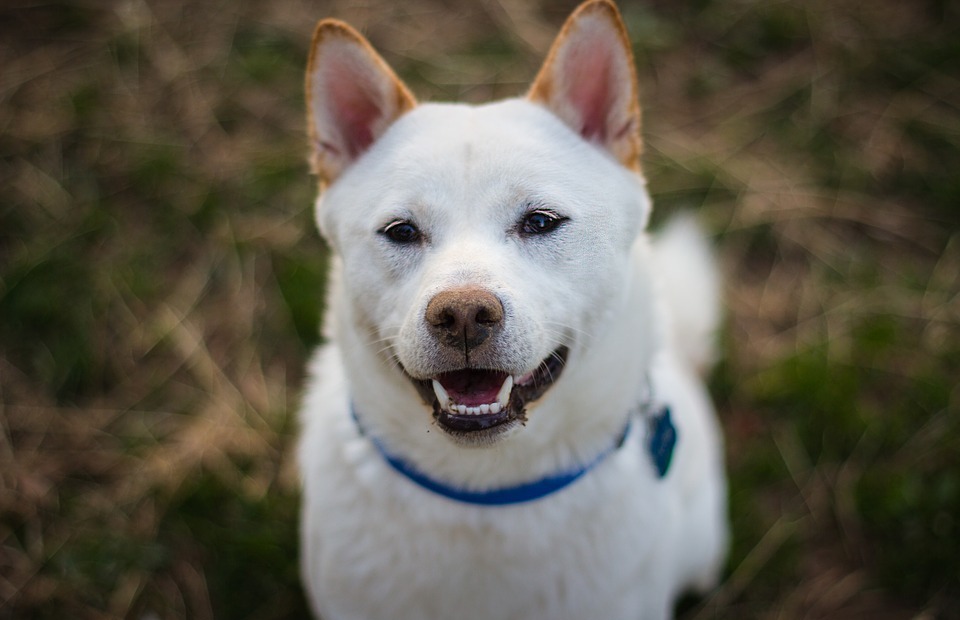As a lifelong dog lover, I can tell you that the bond between a human and their canine companion is truly special. It's a relationship built on trust, loyalty, and unconditional love. But finding the perfect match, the furry friend who fits seamlessly into your life, can be a bit of a journey. It's not just about picking a cute puppy from a litter; it's about finding a dog that aligns with your lifestyle and personality. And trust me, I’ve learned a thing or two along the way. So, let's dive in and explore some tips that will help you find your perfect canine companion.
(Part 1) Getting Ready for Your Furry Friend: Setting the Stage for Success

Before you even start browsing shelters or browsing online profiles, it's crucial to consider a few key things. It's like preparing for a new housemate - you need to be ready to welcome them in!
1. Lifestyle Assessment: A Match Made in Heaven (or at Least in the Park)
Honestly, this is the most important step! Do you spend your days lounging around the house, or are you an active outdoor enthusiast? Do you live in a small apartment or a sprawling countryside home? Knowing your lifestyle will help you narrow down the breeds and personalities that are a good fit.
For example, a high-energy breed like a Border Collie will thrive with an active owner who enjoys long walks and hikes, while a smaller breed like a Cavalier King Charles Spaniel might be a better match for someone who prefers a more relaxed lifestyle. Imagine trying to fit a hyperactive Golden Retriever into a tiny flat – it's just not going to work! A good match considers both the dog's needs and your own.
2. Commitment Check: Are You Ready for the "Woof" Factor?
Owning a dog isn't just about walks and cuddles – it’s a big commitment. Be honest with yourself. Can you handle the responsibility of feeding, grooming, training, and providing veterinary care? Consider your budget, the time you can dedicate to your furry friend, and your willingness to deal with occasional accidents or mishaps.
It's easy to get swept up in the cuteness, but remember, dogs are living beings that require care and attention. A puppy, for instance, will need frequent potty breaks and training sessions, while an older dog might require more frequent vet visits. Are you prepared for this?
3. Research and Resources: The Power of Knowledge
The internet is your friend here! There are countless resources available to help you learn about different dog breeds. Look up their temperament, exercise needs, grooming requirements, and potential health issues. Reading about the history and origin of breeds can also give you valuable insights into their typical traits and personalities.
For example, if you want a calm and loyal companion, you might research breeds known for their gentle nature, such as a Labrador Retriever or a Beagle. If you have an active lifestyle and want a running buddy, a breed like a Jack Russell or a Border Collie might be a better fit. Remember, every breed is different, so research is key!
(Part 2) Choosing a Dog: The Heart Knows Best

So, you’ve done your research and have a good idea of the type of dog that would be a good fit. Now it's time to find your furry friend! There are a few main options:
1. Local Animal Shelters: A Second Chance at Happiness
My first dog came from a local shelter. The best thing about shelters is that you’re giving a loving animal a second chance. Shelter dogs come in all shapes, sizes, and breeds, and many are already house-trained and socialized. Plus, the staff at shelters are incredibly knowledgeable and can help you find the perfect match.
Remember, every dog deserves a loving home. Shelters are filled with dogs of all ages, breeds, and personalities, each with a unique story to tell. By adopting from a shelter, you're not only getting a wonderful companion, but you're also giving a dog a second chance at happiness.
2. Breed-Specific Rescue Organizations: Tailoring Your Search
If you have a particular breed in mind, consider contacting a breed-specific rescue organization. These groups specialize in finding homes for dogs of a specific breed, and they’re usually very passionate about ensuring they go to good homes.
These organizations are often incredibly knowledgeable about their specific breed. They can provide insights into the breed's personality, health considerations, and even help you find a dog with specific traits, like being good with children or other pets.
3. Responsible Breeders: The Art of Breeding
If you’re set on getting a purebred dog, it’s crucial to choose a responsible breeder. A reputable breeder will prioritize the health and well-being of their dogs and will be happy to answer your questions and allow you to meet the parents.
Finding a responsible breeder requires research. Look for breeders who are members of reputable breed clubs and who have their dogs health-tested. A responsible breeder will be transparent about their breeding practices and will be committed to finding good homes for their puppies.
4. The Meeting: Letting Your Instincts Guide You
No matter where you choose to find your dog, be sure to spend time getting to know them. Let them approach you, and see how they react to you and other people. Pay attention to their energy levels, how they interact with other dogs, and their overall personality. The most important thing is to trust your instincts – you’ll know if there’s a connection.
This meeting is crucial for building that initial bond. Let the dog approach you at their own pace, and observe how they react to your presence. Do they seem curious and friendly, or timid and reserved? This initial meeting can give you a good feel for their personality and whether you're a good match.
(Part 3) Bringing Your Dog Home: A Warm Welcome and a Smooth Transition

You’ve found your perfect match and brought them home. Now, it’s time to help them adjust to their new environment and ensure a smooth transition.
1. Setting Up a Safe and Welcoming Space: Creating a Doggy Haven
Before you bring your dog home, make sure you’ve created a safe and comfortable space for them. Set up their bed, bowls for food and water, and any other necessary items. This will help them feel secure and less stressed during the first few days.
Think of it like creating a home away from home for your furry friend. A designated area with their own bed, food and water bowls, and perhaps a few of their favorite toys, will give them a sense of familiarity and security in their new environment.
2. Easing Into the Routine: Introduce Your Dog Gradually
Don’t expect your dog to instantly adapt to your home and routine. Introduce them to your family and other pets gradually, letting them explore their new surroundings at their own pace. Give them plenty of time to settle in and get comfortable.
Imagine moving to a new country – it takes time to adjust! Give your dog a few days (or even weeks) to acclimate to their new home. Allow them to explore their new surroundings at their own pace, and avoid overwhelming them with too much interaction during the initial days.
3. Potty Training: Consistency is Key
If you’re bringing home a puppy, potty training is a top priority. Establish a consistent routine for taking your dog out to the bathroom, and be patient! Accidents happen, but with consistency and positive reinforcement, your puppy will learn quickly.
Potty training requires patience and understanding. Set a regular schedule for bathroom breaks and take your puppy out immediately after meals, naps, and playtime. Positive reinforcement, like praise and treats, is much more effective than punishment for accidents.
(Part 4) Building a Bond: Training and Socialization: The Building Blocks of a Strong Relationship
Once your dog is settled in, it’s time to focus on training and socialization. These two elements are essential for a well-adjusted and happy dog.
1. Positive Reinforcement: Rewarding Good Behaviour
Positive reinforcement training is the most effective way to train your dog. It involves rewarding good behavior with treats, praise, or toys, rather than punishing bad behavior. Consistency is key – the more you practice, the better your dog will learn!
Think of it as a positive feedback loop. When your dog does something good, reward them with praise or a treat. This creates a positive association and encourages them to repeat that behavior. Remember, patience and consistency are essential for successful training.
2. Socialization: Introducing Your Dog to the World
Socialization is crucial for a well-adjusted dog. It’s about exposing your dog to different people, animals, places, and situations in a safe and controlled environment. This helps them build confidence, develop good social skills, and prevent fear-based behaviors.
Start by introducing your dog to friendly people and other dogs in a controlled environment. Gradually expose them to different sounds, sights, and smells, while always being mindful of their comfort levels. Socialization can be as simple as taking a walk in a park or attending a puppy training class.
(Part 5) Taking Care of Your Dog: Health and Wellness – A Lifelong Commitment
Just like any member of your family, your dog needs regular care to stay healthy and happy. This includes vet visits, regular grooming, and a nutritious diet.
1. Regular Vet Checkups: Keeping Your Dog Healthy
Take your dog for regular checkups with your vet, even if they seem healthy. Vaccines, deworming, and flea and tick prevention are essential for maintaining your dog’s health. Your vet can also monitor your dog’s overall health and catch any potential issues early on.
Just like humans, preventative care is key for dogs. Regular checkups allow your vet to identify any health issues early on, when they're often easier to treat. Remember, early detection can make a big difference in your dog's health and well-being.
2. Proper Nutrition: Fueling Your Dog's Energy
Choose a high-quality food that’s appropriate for your dog’s age, breed, and activity level. Talk to your vet about the best dietary options for your dog, and avoid giving them human food – some foods can be toxic to dogs.
A balanced and nutritious diet is essential for your dog's overall health. High-quality dog food provides the necessary nutrients and energy for your dog to thrive. Always consult your vet about the right type and amount of food for your dog's specific needs.
3. Grooming: Keeping Your Dog Clean and Comfortable
Grooming is important for maintaining your dog’s health and hygiene. Brush their coat regularly, trim their nails, and clean their ears. If you have a long-haired dog, you’ll need to take them to a groomer for professional haircuts.
Grooming is not just about aesthetics; it's also about preventing mats, tangles, and other health issues. Regular brushing helps to distribute natural oils and keep their coat healthy, while nail trimming prevents discomfort and injuries.
(Part 6) Building a Lasting Bond: The Joy of Dog Ownership
The best part of dog ownership is the unbreakable bond you form with your furry friend. It’s a relationship built on trust, love, and mutual respect.
1. Communication: Learning to Understand Each Other
As you spend more time with your dog, you’ll learn to understand their body language and communicate with them effectively. Pay attention to their cues, such as tail wags, ear movements, and body posture, to understand their emotions.
Dogs communicate through a variety of signals, including body language, vocalizations, and even their scent. Pay attention to their cues and learn to recognize what they're trying to tell you. This will help you build a stronger bond and understand their needs better.
2. Playtime: Strengthening Your Bond
Playtime is essential for a happy and healthy dog, and it’s also a great way to strengthen your bond. Find activities your dog enjoys, whether it’s fetch, tug-of-war, or simply cuddling on the couch.
Playtime is not just about fun; it's also an opportunity for mental and physical stimulation. It helps strengthen the bond between you and your dog and provides an outlet for their natural instincts.
3. Patience and Understanding: Embracing the Journey
Remember, every dog is an individual with their own unique personality and quirks. Be patient with your dog, and learn to embrace their unique charm. Dog ownership is a journey, and it’s a journey that’s filled with love, laughter, and a whole lot of paw-some memories.
It's a journey of learning, growth, and love. There will be good days and bad days, but through it all, remember to be patient and understanding. The bond you share with your dog is truly special, and the memories you create together will last a lifetime.
(Part 7) FAQs: Answering Your Questions
Here are some frequently asked questions about finding and owning a dog:
1. How do I know if I’m ready to own a dog?
Ask yourself if you’re willing to commit to the responsibilities of dog ownership, including providing for their basic needs, training, and socialization. Can you afford the costs of food, vet care, and other expenses? Do you have the time and energy to dedicate to a dog? If you can answer yes to these questions, you’re likely ready to welcome a furry friend into your life.
2. What are some good dog breeds for first-time owners?
Some breeds known for being good with first-time owners include Labrador Retrievers, Golden Retrievers, Beagles, Cavalier King Charles Spaniels, and Bulldogs. These breeds are typically friendly, easy to train, and adaptable to different lifestyles.
Remember, every dog is an individual, and even within a breed, there can be variations in temperament and personality. So, it's always a good idea to meet the dog and interact with them to get a feel for their individual personality.
3. What should I do if I’m having trouble with my dog’s behaviour?
If you’re struggling with your dog’s behaviour, it’s important to seek professional help. A certified dog trainer or behaviourist can assess your dog’s behaviour, provide training guidance, and offer strategies for managing challenging behaviours.
Don't hesitate to reach out for professional help. A certified dog trainer or behaviourist can provide personalized advice and guidance, helping you address the specific challenges you're facing and build a stronger relationship with your dog.
4. How can I find a reputable breeder?
Ask for recommendations from friends, family, or other dog owners. Look for breeders who are members of reputable breed clubs and who prioritize the health and well-being of their dogs. Reputable breeders will be happy to answer your questions and allow you to meet the parents.
It's worth doing your research and asking around. Reputable breeders are passionate about their breed and want to ensure their puppies go to loving homes. They will be transparent about their breeding practices, provide you with health information, and offer support and guidance after you bring your puppy home.
5. How long does it take for a dog to bond with their owner?
The time it takes for a dog to bond with their owner varies depending on the dog’s individual personality and the relationship between the two. Some dogs bond quickly, while others may take a little longer. The most important thing is to be patient, consistent, and loving, and your dog will eventually bond with you.
Think of it as a friendship that grows over time. The more time you spend together, the stronger the bond will become. Be patient, consistent, and provide your dog with love and attention, and the bond will blossom naturally.
(Part 8) The Journey Ahead: A Life Filled With Unconditional Love
Finding the perfect dog is a journey, but it’s a journey that’s filled with rewards. The love, loyalty, and companionship a dog brings into your life are truly priceless. I hope these tips help you find your furry friend and embark on a journey of paw-some adventures together.
The journey of dog ownership is a rewarding and enriching experience. It's about creating a special bond, sharing adventures, and experiencing unconditional love. Whether you choose to adopt a shelter dog, find a companion through a rescue organization, or work with a reputable breeder, the path to finding your perfect canine companion is filled with hope, happiness, and the promise of a lifetime of love.
Everyone is watching
-

Can Dogs Eat Bananas? A Guide to Safe Treats
DOGS & PUPPIESThis comprehensive guide will delve into the world of canine nutrition, focusing on the popular question: can ...
-

Can Dogs Eat Oranges? (Is It Safe or Toxic?)
DOGS & PUPPIESThis article delves into the question of whether dogs can safely consume oranges. We'll explore the nutrition...
-

Can Dogs Eat Grapes? The Shocking Truth About This Fruit
DOGS & PUPPIESThis article delves into the controversial topic of grapes and dogs, exploring the potential dangers associate...
-

Why Do Dogs Eat Poop? Understanding Coprophagia in Dogs
DOGS & PUPPIESThis article delves into the perplexing phenomenon of coprophagia, the act of eating faeces, in dogs. We explo...
-

Can Dogs Eat Shrimp? A Guide to Safety and Risks
DOGS & PUPPIESThis comprehensive guide dives into the world of shrimp and dogs, exploring the potential benefits and risks a...
